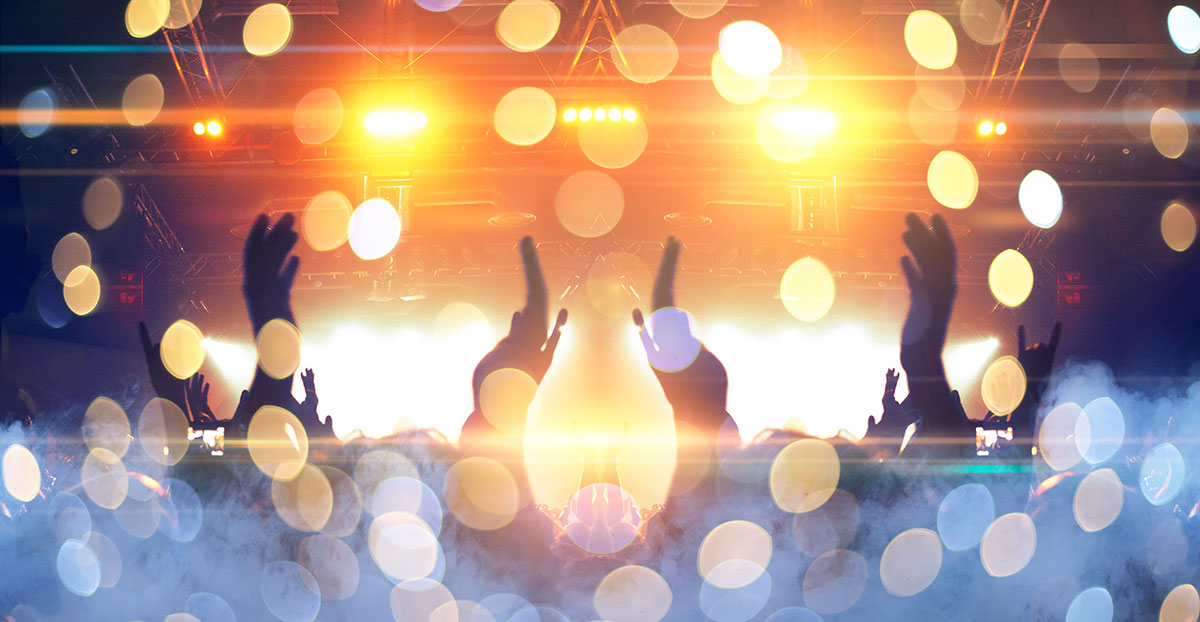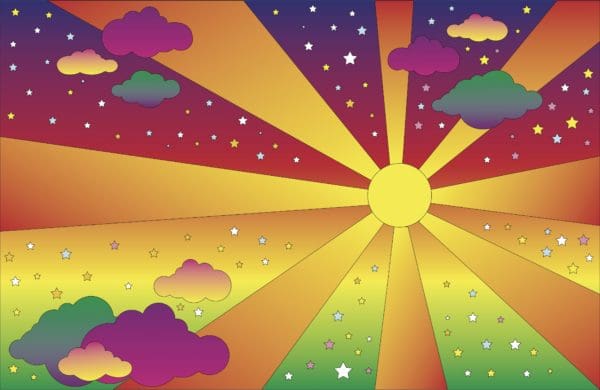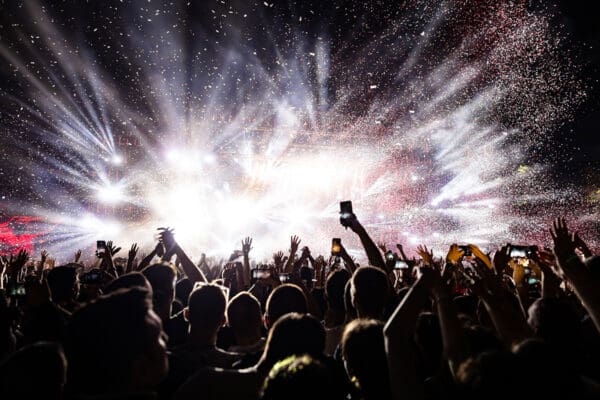As the self-proclaimed “Live Music Capital Of The World,” Austin, Texas has hosted some of the most notable music festivals that draw an international crowd year after year. Events such as SXSW (South by Southwest), ACL (Austin City Limits Festival), Fun Fun Fun Fest, and many other seemingly endless popular productions host some of the most legendary names in music alongside up-and-coming rookies.
While psychedelic rock didn’t solely originate in Austin, the term certainly did. Coined and claimed by frontman Roky Erickson and his group, The 13th Floor Elevators, many other American and British bands also subsequently assigned themselves to this new genre called psychedelic rock during the counterculture movement of the 1960s and beyond.
It should come as no surprise that the music community in Austin has facilitated the rise of numerous groups acclaimed in a wide variety of genres. However, the town’s eclectic sonic climate served as a unique incubator for the revival of psychedelic rock. As such, it became a haven for the genre and provided the ideal location for what is now known as Levitation, a festival celebrating music and art inspired by the hallucinogenic effects of psychedelics like LSD and psilocybin (magic mushrooms).
Keep reading to learn about the history and culture of Levitation and how the annual event has played a key role in reviving a quality of sound that had a lasting impact on every known genre of rock that exists today.
In the beginning
Roky Erickson, now known as the “godfather of psychedelic rock,” his cohort Tommy Hall who famously played an electric jug, and their band the 13th Floor Elevators played a critical role in defining a genre of music the youth of the era passionately aligned themselves with.
The 1966 release of an album entitled “The Psychedelic Sounds of the 13th Floor Elevators” made the influence of LSD on its inception quite clear, with album notes that encouraged the use of LSD for personal exploration (as the substance was not yet illegal at the time). It was a revolutionary work with intentional distortion, reverberation, chaotic effects, and unconventional changes in structure and key.
Where older generations saw outright defiance of the established traditions of music, the youth of the late 1960s identified with psychedelic rock’s opposition to social expectations and artistic illustration of their own experiences with psychedelic substances, which contributed to their overall worldview. As wildly popular groups like The Beatles and The Rolling Stones modified their sound to reflect this new concept of influence, hundreds of other iconic artists emerged or followed suit.
The Beach Boys built upon their existing success by producing “Pet Sounds,” also in 1966. Though much different than their previous releases, it was a vast success and is said to be the album that made psychedelic rock more accessible by bridging a gap between pop and psychedelia. One year later, The Beatles released “Sergent Pepper’s Lonely Hearts Club,” which demonstrated a clear shift in direction for the band’s characteristic sound and a new alignment with the changing musical climate.
Sonic innovations like deliberate distortion and trippy effects influenced the entire rock genre from that point on in various ways. Though the term ‘psychedelic rock’ would mostly wane from prominence for a few decades, the sound and messaging of the genre would live again by resonating with a new generation burdened by similar social and political woes as those of their parents and grandparents in the 1960s.
Levitation
Influenced and inspired by the artistic and musical creations born during the 1960s counterculture movement, Christian Bland and Alex Maas of the modern-day psychedelic rock band The Black Angels partnered with Oswald James and Rob Fitzpatrick to create The Reverberation Appreciation Society. They are the creators and producers of the annual festival called Levitation that celebrates the revival of all things psychedelia, primarily psychedelic rock.
Initially called Austin Psych Fest when it began in 2008, the festival has grown into one of the most prominent psychedelic music events globally and attracts a varied international array of attendees. From 2008 to 2012, the festival was hosted throughout downtown Austin and the Red River District in various indoor live music venues. Hosted by a private property called Carson Creek Ranch in 2013, Austin Psych Fest was held outside along the Colorado River that year. Attendees had the option to camp on-site, and poster art was added to the list of tributes paid to the psychedelic culture of the 1960s.
After Austin Psych Fest wrapped up in May 2014, the name of the Festival was changed to Levitation later that year. It was a nod to a song by the ‘godfather of psychedelic rock’ (and Austin native) Roky Erickson and his band, The 13th Floor Elevators.
Levitation’s flagship event still takes place in Austin each year, though there have been a few exceptions. The 2016 festival was canceled amidst damaging storms, but popup performances and events were hosted by local music venues indoors. Levitation did not occur in 2017, either. The COVID-19 pandemic led to the cancellation of the 2020 production and although the status is still yet to be announced for 2021, it is unlikely that the event will take place yet again. Regardless, Levitation has continued to produce virtual live events (called Levitation Sessions) throughout the year, with appearances from current psychedelic rock icons like Ringo Deathstarr, Fuzz, Ty Segall, Osees, The Black Angels, and more.
The success of Levitation amidst a psychedelic cultural revival has allowed the organizers to bring the event to Chicago and international markets, which have included Levitation productions in France and Canada. The Reverb Appreciation Society has also played a major role in facilitating other psychedelic music events during South By Southwest (SXSW) in Austin, as well as CMJ in New York City and international locations such as The Netherlands and Mexico.
Levitation has played a significant role in the revival of psychedelic rock in the modern age by creating a platform where psychedelic-influenced musicians and appreciators can come together and celebrate psychedelia.









